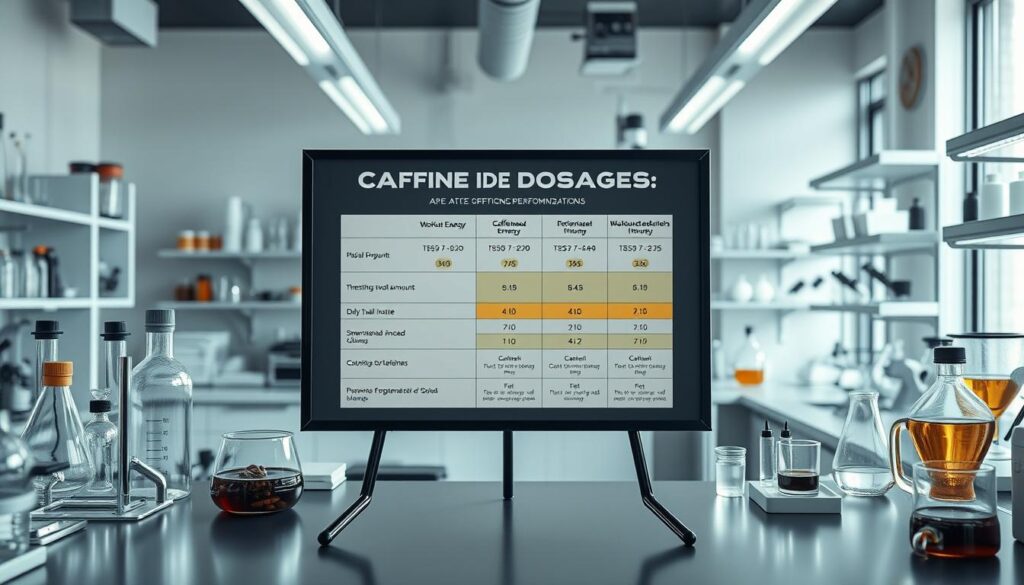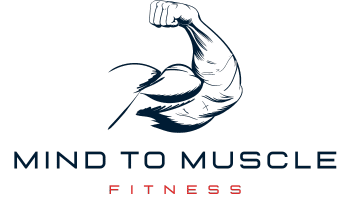
Clean Caffeine Sources for Sustained Workout Energy
If you’re searching for clean caffeine sources, you’ve come to the right spot. Caffeine isn’t just about a quick energy boost. It’s about keeping your energy up during workouts. Choosing natural sources like tea and coffee can boost your endurance and improve your performance.
In this article, we’ll explore different clean caffeine sources to boost your fitness journey. Learn how these healthier options can help you achieve sustained energy during workouts. This way, you can get the most out of every session.
The Importance of Clean Caffeine for Your Workout Energy
Clean caffeine is key for boosting your workout energy. It gives a steady energy boost, unlike other sources that can cause jitters or crashes. This steady energy helps with both physical and mental performance during workouts.
Studies show clean caffeine can really help your workout. It can make muscles stronger, movements faster, and overall performance better. Choosing natural energy sources like clean caffeine makes workouts better and keeps you healthy longer.
Adding clean caffeine to your pre-workout routine can be a game-changer. It not only gives you energy but also helps with recovery and health. Knowing the benefits of clean caffeine helps you make better choices for your workouts.
| Benefits of Clean Caffeine | Effects on Workout Performance |
|---|---|
| Smoother Energy Boost | Improved endurance and focus |
| Enhanced Cognitive Function | Better decision-making during workouts |
| Natural Sources | Reduced risk of jitters and crashes |
| Supports Recovery | Leads to better overall performance |
What is Clean Caffeine?
Understanding clean caffeine is key for boosting workout energy. It’s about using natural, plant-based sources instead of synthetic ones. This choice is better for those who want to improve their fitness.
Definition and Importance
Clean caffeine comes from natural sources like coffee, tea, and yerba mate. It has nutrients and phytonutrients that boost energy. Choosing clean caffeine helps avoid jitters and provides a steady energy boost for long workouts.
Plant-Derived vs. Synthetic Caffeine
Plant-derived caffeine is found in coffee, tea, and yerba mate. These drinks offer health benefits. Synthetic caffeine, found in energy drinks and pills, lacks these benefits. It can cause anxiety and disrupt sleep, making clean caffeine a better choice for workouts.
Clean Caffeine Sources for Energy
Looking for energy during workouts? Clean caffeine sources can help a lot. Yerba mate, green tea, and matcha are top choices. Each offers special benefits for your exercise routine.
Yerba Mate
Yerba mate is a South American herbal drink. It gives a smooth energy boost. It has caffeine, theobromine, vitamins, and minerals.
It improves exercise performance without the coffee jitters. Yerba mate also adds vitamins and antioxidants. This makes it great for your overall health.
Green Tea
Green tea is known for its balanced energy and health perks. It’s full of antioxidants and L-theanine. These help you relax and focus better.
Before a workout, green tea helps you stay calm and focused. You can enjoy it hot or cold. It’s a favorite among those who love fitness.
Matcha
Matcha is finely ground green tea. It’s packed with antioxidants and clean caffeine. The caffeine boosts energy and focus.
Matcha is great for both physical and mental performance. It’s also versatile in cooking. It supports your fitness goals and keeps your energy steady.
How Clean Caffeine Improves Workout Performance
Adding clean caffeine to your workout routine can greatly improve your performance. It boosts endurance and strength, helping you go further and lift more. Studies show that clean caffeine increases stamina and speed, helping both beginners and pros.
Caffeine also makes workouts feel less hard. This lets you keep going strong even when tired. Everyone reacts differently, but the benefits are clear. Clean caffeine helps you power through cardio or weightlifting.
When you take caffeine before working out, it works best. This pre-workout boost is key for better training. It’s a must for anyone wanting to up their game.
| Benefit | Description |
|---|---|
| Enhanced Endurance | Increases the duration one can sustain high-intensity activities. |
| Improved Strength | Supports greater power output during resistance training. |
| Decreased Fatigue | Reduces the feeling of tiredness, encouraging longer workout sessions. |
| Faster Movement Speed | Can lead to quicker sprint times and enhanced overall agility. |
Using clean caffeine wisely can change your fitness journey. It helps you run longer or lift heavier. Clean caffeine is a key to better results.
Recommended Caffeine Dosage for Optimal Performance
Knowing the right amount of caffeine can really boost your workout. Studies show specific amounts that make caffeine work well without causing problems. The aim is to find a sweet spot that boosts your performance safely and comfortably.
Effective Dosages
Most experts agree that 3 to 6 mg of caffeine per kilogram of body weight is best. This amount often improves your performance. If you want to avoid side effects, try 2 mg/kg. It’s all about knowing how your body reacts to caffeine.
Timing Your Caffeine Intake
When you take caffeine matters a lot. Drinking it about 60 minutes before working out is often advised. For quicker effects, try caffeinated gum. Paying attention to both the amount and when you take it helps you get ready for any workout.

Alternative Caffeine Delivery Methods
Looking for ways to add caffeine to your workout can boost your energy and performance. Two popular options are caffeinated gum and energy gels. They offer easy and quick ways to get that caffeine boost during exercise.
Caffeinated Chewing Gum
Caffeinated gum is a handy way to get a quick caffeine boost. Studies suggest it can improve exercise performance as well as traditional caffeine capsules. It’s great because you can carry it with you. This makes it perfect for getting energy on the go.
Energy Gels and Bars
Energy gels and bars are also good for athletes looking for clean caffeine sources. They mix caffeine with carbs for a fast energy boost during workouts. These products help with endurance, making them a smart choice for your workout routine when you need an extra energy boost.
| Method | Caffeine Source | Benefits |
|---|---|---|
| Caffeinated Chewing Gum | Natural/Synthetic | Rapid absorption, portable, no need for liquids |
| Energy Gels | Natural/Synthetic | Quick energy, easy to digest, supports endurance |
| Energy Bars | Natural/Synthetic | Combination of energy and caffeine, convenient for pre- or post-workout |
Potential Side Effects of Caffeine Consumption
Caffeine can boost energy and improve workout performance. But, it’s important to know the possible side effects. These can include trouble sleeping, a faster heart rate, feeling anxious, and stomach problems. Knowing these symptoms helps you manage how much caffeine you drink.
The effects of caffeine can differ from person to person. Most people are okay with up to 400 mg a day. But, everyone’s body reacts differently. If you feel jittery or uncomfortable, it’s a sign to slow down.
Being aware of caffeine’s side effects lets you enjoy its benefits safely. Choose your caffeine sources carefully and listen to your body’s signals.
| Side Effect | Description | Recommended Action |
|---|---|---|
| Insomnia | Difficulty sleeping after caffeine intake | Limit consumption to earlier in the day |
| Increased Heart Rate | Elevated heartbeat after caffeine consumption | Reduce intake or switch to lower doses |
| Anxiety | Feelings of nervousness or restlessness | Monitor intake and consider alternatives |
| Digestive Issues | Stomach upset or discomfort | Choose clean caffeine sources |
Natural vs. Conventional Energy Drinks
Choosing between natural and conventional energy drinks affects your health and how well you perform during workouts. Knowing the differences helps you pick what’s best for your goals.
Key Differences in Ingredients
Conventional energy drinks have synthetic caffeine, lots of sugar, and artificial flavors. These can cause quick energy highs followed by big lows. On the other hand, natural energy drinks use whole ingredients for steady energy. They might include green tea, yerba mate, and natural sweeteners for better health and energy.
Healthier Options Available
Going for natural energy drinks has many benefits, keeping you away from harmful additives. Some top brands are:
- REBBL: Known for its adaptogenic and plant-based ingredients.
- Runa: Features clean caffeine from guayusa leaves, giving a smooth energy boost.
- Guayaki Yerba Mate: Offers a rich source of antioxidants and natural caffeine.
These brands show a move towards healthier energy choices. They highlight the good points of natural energy drinks over conventional ones.
Combining Caffeine with Other Supplements
Many fitness lovers look into mixing supplements to boost their performance. Caffeine is a top pick, often paired with creatine and adaptogens. Knowing how these work together can boost your energy and stamina during exercise.
Caffeine and Creatine
Caffeine and creatine make a great team. Studies show they can up your game, mainly in intense activities. This duo can up your endurance and strength, making your workouts more effective. Here’s what you need to know:
- Caffeine boosts energy, making your workouts more intense.
- Creatine helps muscles recover and get stronger.
- Together, they can improve your performance in lifting and sprinting.
Caffeine with Adaptogens
More people are mixing caffeine with adaptogens like ashwagandha and rhodiola. Adaptogens fight stress and tiredness. When added to caffeine, they help keep your energy up while easing physical stress. The benefits are clear:
- They help you handle stress better during workouts.
- They improve your mental sharpness and focus.
- They help you perform better without the energy crash that caffeine can cause.
Using caffeine with creatine and adaptogens can create a strong supplement plan. It boosts both your energy and endurance. This way, you can dive into your workouts with more energy and focus.
Tips for Integrating Clean Caffeine into Your Fitness Routine
Starting with small amounts of caffeine is key when adding it to your workouts. This helps you see how your body reacts. Try different sources like yerba mate or green tea to find what works best for you.
It’s important to time your caffeine intake right. Drink it 30 to 60 minutes before you exercise. This boosts your energy and focus, helping you perform better without feeling jittery.
Adding caffeine to your fitness plan can really help. Follow clean caffeine tips and listen to how your body feels. Make sure to stay hydrated and eat well too. This way, you get the most out of caffeine without harming your health.



